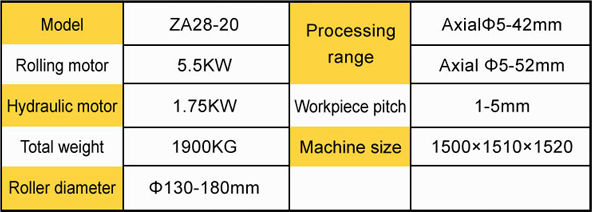
-
 Afrikaans
Afrikaans -
 Albanian
Albanian -
 Amharic
Amharic -
 Arabic
Arabic -
 Armenian
Armenian -
 Azerbaijani
Azerbaijani -
 Basque
Basque -
 Belarusian
Belarusian -
 Bengali
Bengali -
 Bosnian
Bosnian -
 Bulgarian
Bulgarian -
 Catalan
Catalan -
 Cebuano
Cebuano -
 Corsican
Corsican -
 Croatian
Croatian -
 Czech
Czech -
 Danish
Danish -
 Dutch
Dutch -
 English
English -
 Esperanto
Esperanto -
 Estonian
Estonian -
 Finnish
Finnish -
 French
French -
 Frisian
Frisian -
 Galician
Galician -
 Georgian
Georgian -
 German
German -
 Greek
Greek -
 Gujarati
Gujarati -
 Haitian Creole
Haitian Creole -
 hausa
hausa -
 hawaiian
hawaiian -
 Hebrew
Hebrew -
 Hindi
Hindi -
 Miao
Miao -
 Hungarian
Hungarian -
 Icelandic
Icelandic -
 igbo
igbo -
 Indonesian
Indonesian -
 irish
irish -
 Italian
Italian -
 Japanese
Japanese -
 Javanese
Javanese -
 Kannada
Kannada -
 kazakh
kazakh -
 Khmer
Khmer -
 Rwandese
Rwandese -
 Korean
Korean -
 Kurdish
Kurdish -
 Kyrgyz
Kyrgyz -
 Lao
Lao -
 Latin
Latin -
 Latvian
Latvian -
 Lithuanian
Lithuanian -
 Luxembourgish
Luxembourgish -
 Macedonian
Macedonian -
 Malgashi
Malgashi -
 Malay
Malay -
 Malayalam
Malayalam -
 Maltese
Maltese -
 Maori
Maori -
 Marathi
Marathi -
 Mongolian
Mongolian -
 Myanmar
Myanmar -
 Nepali
Nepali -
 Norwegian
Norwegian -
 Norwegian
Norwegian -
 Occitan
Occitan -
 Pashto
Pashto -
 Persian
Persian -
 Polish
Polish -
 Portuguese
Portuguese -
 Punjabi
Punjabi -
 Romanian
Romanian -
 Russian
Russian -
 Samoan
Samoan -
 Scottish Gaelic
Scottish Gaelic -
 Serbian
Serbian -
 Sesotho
Sesotho -
 Shona
Shona -
 Sindhi
Sindhi -
 Sinhala
Sinhala -
 Slovak
Slovak -
 Slovenian
Slovenian -
 Somali
Somali -
 Spanish
Spanish -
 Sundanese
Sundanese -
 Swahili
Swahili -
 Swedish
Swedish -
 Tagalog
Tagalog -
 Tajik
Tajik -
 Tamil
Tamil -
 Tatar
Tatar -
 Telugu
Telugu -
 Thai
Thai -
 Turkish
Turkish -
 Turkmen
Turkmen -
 Ukrainian
Ukrainian -
 Urdu
Urdu -
 Uighur
Uighur -
 Uzbek
Uzbek -
 Vietnamese
Vietnamese -
 Welsh
Welsh -
 Bantu
Bantu -
 Yiddish
Yiddish -
 Yoruba
Yoruba -
 Zulu
Zulu
CE Certification for Thread Rolling Machines and Their HS Code Details
Understanding CE Certification for Thread Rolling Machines and Relevant HS Codes
When it comes to manufacturing, machinery plays a vital role in ensuring efficient and high-quality production processes. One such piece of equipment is the thread rolling machine, a specialized device used to create threads on metal components. As industries become increasingly global, understanding the regulations and standards governing these machines, including CE certification and HS codes, is essential for manufacturers and importers alike.
What is CE Certification?
CE certification is a mandatory conformity marking for certain products sold within the European Economic Area (EEA). The CE stands for Conformité Européenne, which translates to European Conformity. This certification indicates that a product complies with EU safety, health, and environmental protection standards. For manufacturers of thread rolling machines, obtaining CE certification is crucial if they intend to market their products in Europe.
To achieve CE certification, manufacturers must ensure that their thread rolling machines meet specific European directives, such as the Machinery Directive, the Low Voltage Directive, and the Electromagnetic Compatibility Directive. The process typically involves rigorous testing and quality assurance measures, including risk assessments and technical documentation. Once compliance is established, manufacturers can affix the CE mark to their products, demonstrating conformity to all applicable regulations.
Importance of CE Certification
1. Market Access CE certification is a gateway for manufacturers to enter the European market. Without the CE mark, products cannot be sold within the EEA, severely limiting business opportunities.
2. Consumer Safety The certification process ensures that products meet high safety standards, thereby protecting consumers and reducing the risk of accidents related to machinery malfunctions.
4. Competitive Advantage Having CE certification can enhance a manufacturer's reputation, providing a competitive edge over rivals who may not comply with these stringent standards.
ce certification thread rolling machine hs code

The Role of HS Codes
Humanity has developed global trade systems to facilitate the import and export of goods. At the heart of these systems are Harmonized System (HS) codes, which serve as a standardized method of classifying traded products. The HS code for thread rolling machines, which falls under Chapter 84 covering machinery and mechanical appliances, is critical for international trade compliance.
For thread rolling machines, HS codes may vary based on specific functions, components, and materials used. Proper classification under the correct HS code is essential for several reasons
1. Customs Clearance Accurate HS coding allows for smooth customs procedures. Incorrect classifications can lead to delays, fines, or confiscation of goods.
2. Tariff Rates Different HS codes may attract different tariff rates. Understanding these implications can influence pricing strategies for export and import, ultimately affecting profit margins.
3. Market Intelligence Analyzing HS code data can provide insights into market trends, helping manufacturers understand demand, competitive landscape, and potential growth areas.
Conclusion
For manufacturers of thread rolling machines, navigating the complexities of CE certification and HS code classification is vital for successful operation in the global marketplace. CE certification not only demonstrates compliance with EU standards but also enhances the product's marketability in Europe. On the other hand, understanding HS codes is essential for seamless international trade, ensuring that products are classified appropriately for customs and tariff purposes.
As industries continue to evolve, staying informed about these compliance measures will position manufacturers strategically, enabling them to capitalize on market opportunities while maintaining high standards of safety and quality. In summary, compliance with CE certification and proper HS code classification form the backbone of successful and responsible machinery manufacturing and trading practices.
